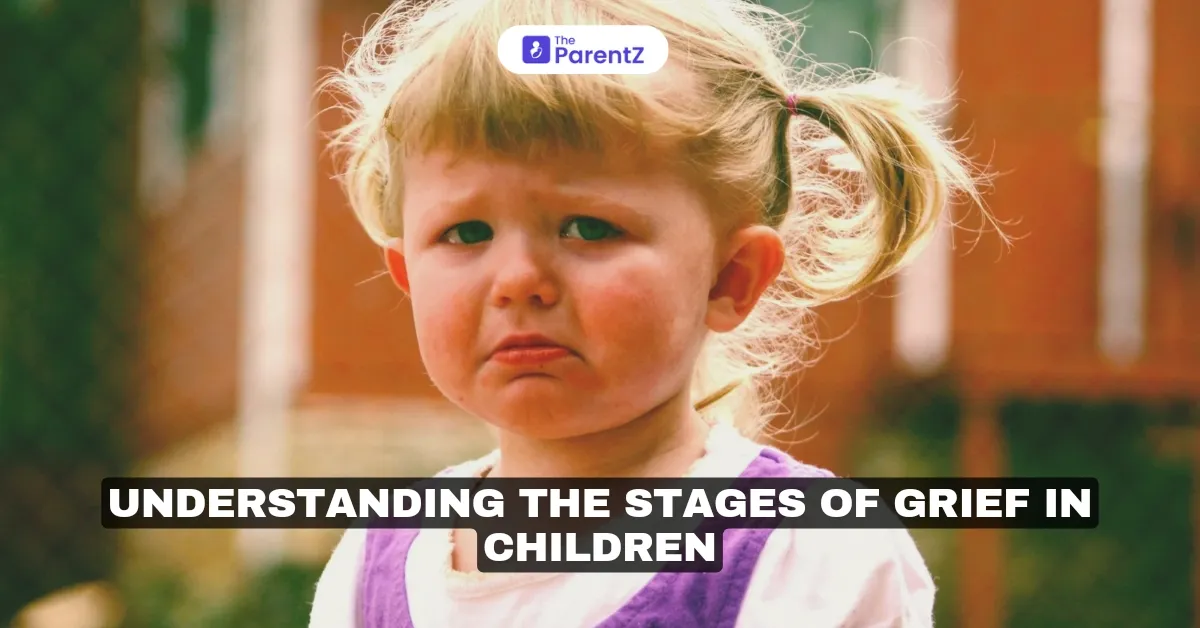Grief in children, often overlooked, is a complex emotional journey that can manifest in various ways. While the stages of grief are commonly associated with adult experiences, children, too, navigate these stages, albeit in unique ways. As parents and caregivers, understanding these stages is essential for providing the necessary emotional support. This article examines the stages of grief in children, how to identify symptoms, and effective strategies for helping them cope while emphasizing the importance of emotional health.
The Stages of Grief in Children
Children experience grief differently than adults, often cycling through various emotional responses rather than following a linear progression. While many adults are familiar with the five stages of grief—denial, anger, bargaining, depression, and acceptance—children may not exhibit these stages in a predictable order. Instead, they might oscillate between emotions such as sadness, confusion, anger, and even moments of joy or playfulness.
Developmental Considerations
- Ages 2-4: At this stage, children struggle to understand the permanence of death. They may express grief through regression (e.g., bedwetting), clinginess, or changes in sleep patterns. Their inquiries about death often reflect a present-oriented mindset; they might repeatedly ask questions without grasping the finality of loss.
- Ages 4-7: Children begin to understand that death is irreversible but may still engage in magical thinking, believing their actions could have caused the death. They may express grief through nightmares or aggressive play and often need reassurance about their own safety and the well-being of surviving family members.
- Ages 7-12: As cognitive abilities develop further, children start to comprehend the concept of death more fully. They may experience guilt or shame regarding their feelings and can articulate their emotions more clearly. This age group often benefits from discussions about loss and memorialization activities.
- Adolescents (12+): Teenagers grapple with complex emotions and may express their grief through withdrawal or risky behaviors. They often seek independence while still needing parental support to navigate their feelings.
Recognizing Symptoms of Grief
Parents play a huge role in identifying signs of grief in their children. Symptoms can vary widely based on age and individual temperament but may include:
- Emotional Indicators: Children experiencing grief often exhibit a range of emotional responses. They may feel intense sadness, which can lead to frequent crying or moments of anger and frustration. It's common for them to feel overwhelmed by conflicting emotions, such as relief mixed with sadness, especially if the deceased was suffering. Numbness or shock can also occur, making it difficult for them to process their feelings initially.
- Behavioral Changes: Regression to earlier behaviors (thumb-sucking or baby talk), withdrawal from friends or activities, or changes in appetite.
- Physical Symptoms: Grief doesn't just affect emotions; it can also lead to physical symptoms. Children might experience:
- Fatigue: A profound sense of tiredness can arise from the emotional toll of grief.
- Changes in Appetite: Some may eat significantly less or more than usual.
- Sleep Issues: Difficulty falling asleep or staying asleep is common, as is experiencing nightmares.
- Aches and Pains: Unexplained physical discomfort, such as headaches or stomach aches, may occur.
By being observant and empathetic, parents can better understand what their child is experiencing during these challenging times.
Responding to Grief Stages
When parents identify that their child is experiencing grief, it is essential to respond appropriately:
- Acknowledge Feelings: Validate your child's emotions by letting them know it's okay to feel sad or angry. Encouraging open discussions about feelings helps normalize their experiences.
- Provide Honest Answers: Use clear and age-appropriate language when discussing death. Avoid euphemisms that might confuse them; instead, be direct about what has happened.
- Encourage Expression: Children might find it difficult to articulate their feelings verbally. Encourage them to express themselves through art, writing, or play, as these outlets can facilitate emotional processing.
Understanding the Reasons Behind Grief
Understanding why children grieve is crucial for effective support. Factors influencing a child's grief response include:
- Nature of the Loss: Sudden losses (like accidents) can be particularly traumatic compared to anticipated losses (such as terminal illness).
- Family Dynamics: The emotional state of parents significantly impacts how children cope with loss. If parents are overwhelmed by their grief, they may unintentionally neglect the emotional needs of surviving children.
- Support Systems: Access to supportive relationships with friends and family can help mitigate feelings of isolation during grief.
Helping Children Overcome Grief
To assist children in navigating their grief journey effectively:
- Maintain Routines: Keeping regular schedules provides stability and security during tumultuous times.
- Memorialize Loved Ones: Engaging in activities that honor the deceased—like creating memory books or participating in memorial services—can help children process their emotions.
- Seek Professional Help: If a child's grief appears overwhelming or prolonged, consulting a mental health professional specializing in childhood bereavement can provide additional support.
Conclusion
Understanding grief in children involves recognizing the unique ways they experience loss at different stages of development. By being attentive to symptoms and providing thoughtful parenting support, you can help your child navigate these challenging emotions effectively. Remember that every child's journey through grief is different; what matters most is creating an environment where they feel safe expressing themselves and knowing that their feelings are valid. Supporting your child's emotional health during this time will not only help them cope with loss but also strengthen your relationship as they learn that it's okay to share both joy and sorrow with those they love.






